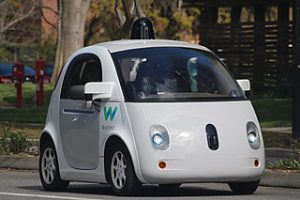February 1st, 2019
Join us as an Assistant Economist
To help us deliver analysis we are looking for economists to join us and influence the day-to-day lives of every person in the UK.
The Government Economic Service is at the heart of everything government does with high quality economic analysis essential to decision making in everything from negotiating new trade deals to building HS2, from supporting regional growth to managing the UK’s debt.
This is an exciting time to be joining the civil service, and with continuous support you’ll prepare vital briefings for ministers or the public, provide advice on policy options, and ensure the quality and appropriate use of economic statistics.
Applicants will need to possess or expected to have a first or upper second class honours degree with at least 50% of the modules in economics, or have a masters in economics.
Closing date: 28 February 2019
Salary: £27,000+
Grade: HEO (Economics)
Working pattern: Full-time, Part-time
Hours: 37 hours
For further details and to apply now please visit our website
April 14th, 2018
With the opening of the new Amazon Go store in Seattle, many people can’t help but wonder about the impact automation is having on the employment market. Amazon’s new store involves simply walking in, picking up your products and  walking out – no checkout service included. The way customers pay for products is through in-store sensors, which monitor the items placed in a person’s basket and bill those products to their Amazon Prime account. It may sound simple, but software developers have been working on the idea for years. Amazon are now considering opening around 200 similar stores across the United States.
walking out – no checkout service included. The way customers pay for products is through in-store sensors, which monitor the items placed in a person’s basket and bill those products to their Amazon Prime account. It may sound simple, but software developers have been working on the idea for years. Amazon are now considering opening around 200 similar stores across the United States.
Read the rest of this entry »
January 29th, 2018
For economists, Monarch’s collapse is, in many ways, not surprising – it was operating in an oligopolistic market, already hugely saturated and with little product differentiation. For others, the airline’s demise seemed to happen almost overnight. This wasn’t the case and in this blog, I will go through each of the factors which simultaneously led to Monarch’s collapse, discussing each in turn.
Read the rest of this entry »
October 2nd, 2017
When discussing Artificial Intelligence (hereafter AI), many envisage computer systems that are able to take on similar cognitive functions to the human brain and worry that there will no longer be a place for many skilled workers in key industries. The image of mass unemployment due to robot Armageddon is a common one portrayed in the media. While, some of the potential benefits of the rise of intelligent computer systems, for example in the pharmaceutical industry, are often ignored.
Read the rest of this entry »
August 24th, 2017
The huge increase in interest towards autonomous vehicles has caused concern for numerous vehicle manufacturers across the globe. Many now see technology firms as being better placed than carmakers to develop and profit from the software that will underpin automated driving (The Economist, 2016). Tesla is a key example, given that it did not originally set out to be a vehicle manufacturer but is now the most valuable car company in the US. But is this really a cause for concern for core vehicle manufacturers?
Read the rest of this entry »
June 22nd, 2017
Gig workers are those who work small jobs, commonly referred to as ‘gigs’, instead of, or perhaps on top of, a full-time job and are paid for the amount of ‘gigs’ they undertake. Their employment status is somewhat confusing to many. Given the digital revolution, it is becoming hard to avoid articles discussing the so-called gig economy given the increasing amount of new companies operating under such a casual structure. Certain couriers, Deliveroo, Uber and AirBnB are just some examples of companies which fall under the gig economy category and there are increasing reports discussing the legal rights of those ‘employed’ by such companies. Indeed, Uber is a prime example: a recent ruling declared that its drivers cannot be classified as self-employed, as Uber wanted, and are thus entitled to the national living wage and holiday pay. Airbnb is also undergoing legal action in New York given a new law which enables the escalating of fines on homeowners who rent out their property for less than 30 days. As court cases and employment tribunals against such companies are on the rise, this blog discusses how regulatory rules are affecting these companies. It also takes account of the huge tax windfall that the UK government could gain as a result.
Read the rest of this entry »
March 14th, 2017
Studies into the idea of a universal basic income (UBI) have recently gained visible traction in academia and much more prominence in the media, following the introduction of pilot schemes in Finland and California. Scotland is also set to see trials in two Labour-run areas, following the party’s establishment of a new working group to look into its viability. As well as these examples, Namibia has considered the introduction of UBI, the Netherlands will be holding an experiment on UBI this year, Brazil continues to hold trials (it has been on the cards since the 1980s), 10,000 people have signed up in support of basic income in Canada, and India’s 2016-2017 Economic Survey has identified that the Indian Government believe UBI is a better approach to reducing poverty than current state benefits. In light of this, this blog post explores why UBI is gaining support from policy strategists, governments and entrepreneurs alike, and whether it could be a viable solution to some of the big issues of our time.
Read the rest of this entry »
January 30th, 2017
By Charles Shaw
The Prime Minister recently announced her intention to reinstate grammar schools and bring back selective admissions. A key issue of contention is the claim that the shift from a selective to a comprehensive school system had a deleterious effect on social mobility in Great Britain.
It is possible that certain changes to the status quo are needed, perhaps even a centrally coordinated response. But one must proceed with a great deal of caution. Any informed response to such questions must draw on the knowledge, experience, and consensus of those in higher education, and on their understanding of what knowledge is fundamental for subsequent progress. Read the rest of this entry »
January 30th, 2017
By Konstantinos Dagklis
Game Theory uses mathematical tools to find solutions in situations where interdependent parties make strategic decisions. Many developments in this field are quite recent and there is a wealth of material for curious minds. In looking at game theoretical applications in the real world, two models from Schelling and Shubik will be discussed. The first one shows why racial segregation is difficult to combat, and the second illustrates why people can be compelled to make irrational decisions. Read the rest of this entry »
November 14th, 2016
While the news of Heathrow airport’s expansion came to sore ears for green activists who have campaigned against it since as early as 2006, the aviation industry appears to finally have a victory. Indeed, globalisation and technological innovation are driving an increase in cross-border flows of goods, services and people (gov.uk) and to stay on top of this, increased connectivity is needed. Those supporting the expansion argue that a third runway will enhance the UK’s economic growth by connecting the UK with growing world markets which will enable UK businesses to have better access to traders. While a boost for UK business, the third runway will also benefit passengers by offering more destinations and greater a choice of airlines. As a result, competition will be boosted which could perhaps lower air fares. Indeed, the Airports Commission has stated that “The position of the UK within the global aviation market is critical to its economy: it is central to ensuring increased productivity, growth and employment opportunities”. Nonetheless, while most analysis has been so heavily focused on the UK’s boost in terms of business openness and connectivity, many economists forget to mention the multiplier effect this will have on the local area and the UK as a whole.
Read the rest of this entry »

 walking out – no checkout service included. The way customers pay for products is through in-store sensors, which monitor the items placed in a person’s basket and bill those products to their Amazon Prime account. It may sound simple, but software developers have been working on the idea for years. Amazon are now considering opening around 200 similar stores across the United States.
walking out – no checkout service included. The way customers pay for products is through in-store sensors, which monitor the items placed in a person’s basket and bill those products to their Amazon Prime account. It may sound simple, but software developers have been working on the idea for years. Amazon are now considering opening around 200 similar stores across the United States.


